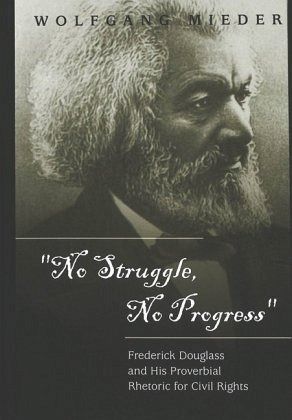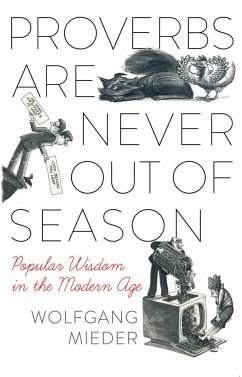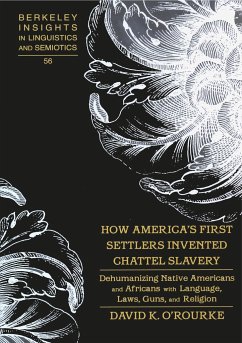
"No Struggle, No Progress"
Frederick Douglass and His Proverbial Rhetoric for Civil Rights
Versandkostenfrei!
Versandfertig in 6-10 Tagen
64,99 €
inkl. MwSt.

PAYBACK Punkte
32 °P sammeln!
Frederick Douglass (1818-1895) is a giant among civil rights leaders of the United States. With words and deeds he fought against slavery and championed civil rights for all citizens, regardless of race, gender, or creed. His very own proverbial motto, "If there is no struggle, there is no progress", expresses his moral commitment to free the slaves and to fight for human rights. Much of his rhetorical prowess is based on proverbial language. As an abolitionist, he cites proverbs to argue against slavery. He also employs this Biblical and folk wisdom in his call for liberty and equality, formu...
Frederick Douglass (1818-1895) is a giant among civil rights leaders of the United States. With words and deeds he fought against slavery and championed civil rights for all citizens, regardless of race, gender, or creed. His very own proverbial motto, "If there is no struggle, there is no progress", expresses his moral commitment to free the slaves and to fight for human rights. Much of his rhetorical prowess is based on proverbial language. As an abolitionist, he cites proverbs to argue against slavery. He also employs this Biblical and folk wisdom in his call for liberty and equality, formulating impressive proverbial jeremiads after the Civil War. But proverbs also suit his fight for civil rights, and he makes the Golden Rule ("Do onto others as you would have them do onto you.") the ultimate wisdom for human life. These elements of traditional folk speech are certainly part and parcel of Frederick Douglass's social struggle for freedom and equality. This book contains a detailed analysis of Douglass's effective use of proverbial language in his published works. There is also an extensive key-word index of the contextualized occurrences of all proverbs and proverbial expressions used by Frederick Douglass in his crusade for the universal right to life, liberty, and the pursuit of happiness.












